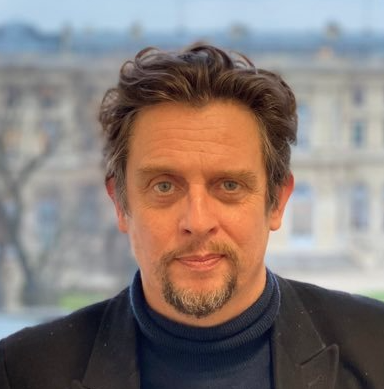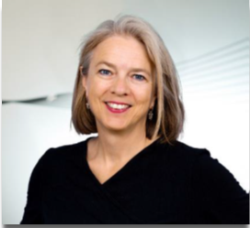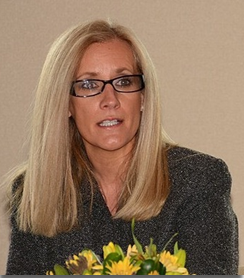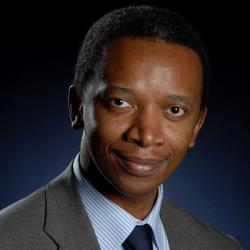Advancing the GDC Principles and WSIS Action Lines
UN Department of Economic and Social Affairs/ Internet Governance Forum Secretariat
Session 132
IGF Policy Work and Mechanisms in Support of Global Digital Cooperation
The session will explore the role of the Internet Governance Forum (IGF) in advancing the Global Digital Compact (GDC) principles and WSIS action lines nearly twenty years on, highlighting the Forum’s substantive work and multistakeholder collaboration mechanisms. Through this lens, it will delve into how the IGF is strongly aligned with and contributes to the principles of the GDC and WSIS processes, as demonstrated by the IGF Leadership Panel’s vision for the Internet We Want; shares the range of digital topics covered by those processes; as well as how IGF can operationalise and has operationalised GDC and WSIS commitments through its effective, valued multistakeholder approaches.
The first 25 minutes will feature interventions from panelists who will provide insights on IGF work in the context of the GDC and WSIS, focusing on:
- How IGF promotes an open, inclusive Internet, and trustworthy, secure and rights-respecting digital technologies in the Internet We Want, mirroring calls for a human-centered approach to digital governance.
- How the IGF's initiatives and outcomes correspond with GDC and WSIS objectives, particularly those aiming to bridge digital divides, govern emerging technologies and advance equitable international data governance.
- The IGF’s capability to foster global and regional cooperation in implementing GDC and WSIS commitments, through its established network of stakeholders across government, private sector, the technical community and civil society.
The last point will explore how IGF facilitates coordination on complex digital issues by leveraging its inclusive environment, ensuring the integration of a wide range of voices, such as those of women, youth, persons with disabilities, and other groups who are underrepresented in the digital discourse. Moreover, the IGF’s extensive, vibrant network of national and regional initiatives (NRIs), and the network’s connection to the global IGF, can further the nascent GDC’s commitments by linking technical experts, donors and partner institutions with the communities who need them.
The final 20 minutes of the session will open the floor to discussion with participants.

Henri Verdier, born in 1968, is the French Ambassador for Digital Affairs within the French Ministry for Europe and Foreign Affairs. Since 2018, he leads and coordinates the French Digital Diplomacy.
He previously was the inter-ministerial director for digital information and communications systems (DG DINUM) of France; and he was the director of Etalab, the French agency for public open data.
Mr Verdier is also an entrepreneur: he was the co-founder and CEO of MFG Labs, an internet-based startup involved in social data mining, and chairman of the board of Cap Digital, the French-European Cluster for Digital Content and Services, located in Paris. He is member of the ARCEP strategic committee, member of the CNIL strategic committee and also served as member of the board of Paris-Sorbonne University. In addition, Mr Verdier was the founding director of Edition Odile Jacob Multimedia, a publishing company in the field of e-learning and executive adviser for innovation at Lagardère Group as well as director of foresight at Institut Telecom.

Lise is Director General of ETNO, the Association representing Europe’s leading telecom operators, which she joined in 2016. Lise is the Chairwoman of the Boards of Public Interest Registry (.org domain name registry) and the Public Technical Identifiers (PTI), formerly IANA, and affiliate of ICANN. She is also a Board member of European Cyber Security Organisation (ECSO).
Prior to joining ETNO, Lise was Chief Operating Officer of DK Hostmaster and DIFO, the company managing .dk domain names. From September 2014 to October 2016, Lise also chaired the Cross Community Working Group for the IANA Stewardship Transition, building on her strong network within the internet community. Lise has 20+ years of experience in the internet and telecoms industries. She is a lifelong member of ATV – the Danish Academy of Technical Sciences – an independent think tank that utilises the combined knowledge of more than 800 Fellows and partner members – for the benefit of future generations.
.png?maxwidth=250)
Maria Fernanda Garza is a Mexican businesswoman, CEO of Orestia, a manufacturing home improvement- water solutions company, with exports to USMCA region, Latin-America and Asia.
Her interest in improving the business environment, made her a prominent business leader at a young age. Board member of Mexico´s leading business organizations such as COPARMEX, CCE, ALIARSE, among others.
For ten years, Mexico’s Employer Delegate to the International Labour Organization Conference, where she became appointed Employer’s Vice Chair at the ILO’s 98th Session.
Maria Fernanda Garza was Chair of ICC México from 2014 – 2020.
She is currently Chair of the International Chamber of Commerce (ICC), Member of the Governing Body of the International Court of Arbitration.
Member of the Advisory Committee on Sustainable Urbanization of the President of the UN General Assembly’s and member of the International Advocacy Caucus of Indonesia B20.

Mr. Chengetai Masango is the head of the United Nations Secretariat of the Internet Governance Forum (IGF) which was set up after the World Summit on the Information Society to facilitate public policy discourse on issues related to key elements of Internet governance in order to foster the sustainability, robustness, security, stability and development of the Internet. Mr. Masango holds a master’s degree in International Relations- Global Information Policy and degrees in Information Management and Computer Programming. His PhD research relates to transnational collective action and effective practices of globally distributed multicultural themes.
-
 C1. The role of governments and all stakeholders in the promotion of ICTs for development
C1. The role of governments and all stakeholders in the promotion of ICTs for development
-
 C11. International and regional cooperation
C11. International and regional cooperation
C1, C4, C5, C6, C7, C8, C10, C11
-
 Goal 4: Ensure inclusive and equitable quality education and promote lifelong learning opportunities for all
Goal 4: Ensure inclusive and equitable quality education and promote lifelong learning opportunities for all
-
 Goal 5: Achieve gender equality and empower all women and girls
Goal 5: Achieve gender equality and empower all women and girls
-
 Goal 8: Promote inclusive and sustainable economic growth, employment and decent work for all
Goal 8: Promote inclusive and sustainable economic growth, employment and decent work for all
-
 Goal 9: Build resilient infrastructure, promote sustainable industrialization and foster innovation
Goal 9: Build resilient infrastructure, promote sustainable industrialization and foster innovation
-
 Goal 10: Reduce inequality within and among countries
Goal 10: Reduce inequality within and among countries
-
 Goal 16: Promote just, peaceful and inclusive societies
Goal 16: Promote just, peaceful and inclusive societies
-
 Goal 17: Revitalize the global partnership for sustainable development
Goal 17: Revitalize the global partnership for sustainable development
Continued IGF action in support of sustainable development objectives
https://www.intgovforum.org/en
https://twitter.com/intgovforum
https://www.instagram.com/intgovforum/
https://www.facebook.com/IntGovForum/
https://www.linkedin.com/in/intgovforum/